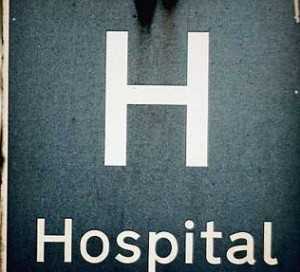- Home
- Medical news & Guidelines
- Anesthesiology
- Cardiology and CTVS
- Critical Care
- Dentistry
- Dermatology
- Diabetes and Endocrinology
- ENT
- Gastroenterology
- Medicine
- Nephrology
- Neurology
- Obstretics-Gynaecology
- Oncology
- Ophthalmology
- Orthopaedics
- Pediatrics-Neonatology
- Psychiatry
- Pulmonology
- Radiology
- Surgery
- Urology
- Laboratory Medicine
- Diet
- Nursing
- Paramedical
- Physiotherapy
- Health news
- Fact Check
- Bone Health Fact Check
- Brain Health Fact Check
- Cancer Related Fact Check
- Child Care Fact Check
- Dental and oral health fact check
- Diabetes and metabolic health fact check
- Diet and Nutrition Fact Check
- Eye and ENT Care Fact Check
- Fitness fact check
- Gut health fact check
- Heart health fact check
- Kidney health fact check
- Medical education fact check
- Men's health fact check
- Respiratory fact check
- Skin and hair care fact check
- Vaccine and Immunization fact check
- Women's health fact check
- AYUSH
- State News
- Andaman and Nicobar Islands
- Andhra Pradesh
- Arunachal Pradesh
- Assam
- Bihar
- Chandigarh
- Chattisgarh
- Dadra and Nagar Haveli
- Daman and Diu
- Delhi
- Goa
- Gujarat
- Haryana
- Himachal Pradesh
- Jammu & Kashmir
- Jharkhand
- Karnataka
- Kerala
- Ladakh
- Lakshadweep
- Madhya Pradesh
- Maharashtra
- Manipur
- Meghalaya
- Mizoram
- Nagaland
- Odisha
- Puducherry
- Punjab
- Rajasthan
- Sikkim
- Tamil Nadu
- Telangana
- Tripura
- Uttar Pradesh
- Uttrakhand
- West Bengal
- Medical Education
- Industry
New trick to reduce hospital readmission rates

New Delhi: Experts have come up with a new trick to reduce hospital readmission rates.
According to a new study, lay-health workers may be able to significantly reduce readmissions rates to hospitals for high-risk patients following surgery.
A lay-health worker is someone who has received some training to promote health or to carry out some health-care services and who acts as a link between formal health services and patients, especially those at high-risk. In the United States, lay-health worker programs first emerged as part of the Great Society domestic policies in the 1960s.
Lay-health workers, who perform specific, delineated tasks, like assisting during medical appointments and providing access to transportation, can be deployed much faster than more highly trained health professionals.
Often, they can improve patient experiences through culturally sensitive, community-based health services. They also serve as a resource for patients attempting to obtain health education or navigate the healthcare system.
Patients are uncertain and vulnerable when discharged after a long hospitalization. These patients shift from being dependent and complacent while hospitalized to having significant responsibilities, which can potentially affect their risks for readmission.
Roughly 20 percent of all Medicare fee-for-service patients are readmitted within 30-days of hospital discharge, costing the healthcare system an estimated USD 17 billion annually. The majority of these readmissions are avoidable.
The aim of this study was to reduce 30-day hospital readmission rates in a community hospital in Kentucky using lay-health workers to assess and assist hospitalized high-risk patients.
The study was conducted in St. Claire Regional Medical Center in Morehead, KY. Hospitalized patients (men and women over 18 years old of any racial/ethnic group and admitting diagnosis) at high-risk of a 30-day readmission to the hospital were targeted for the study.
This group was identified as high-risk given their medical history and health problems. This study was designed to assess the implementation of a lay-health model for assisting high-risk patients with their post-discharge social needs.
Outcome measures included 30-day hospital readmissions rates during a 4-month baseline period compared with a 6-month post-implementation period.
The study involved assessment and development of a personalized social needs plan for enrolled patients (e.g. transportation and community resource identification), with post-discharge follow-up calls.
There was a 47.7 percent relative reduction of 30-day hospital readmissions rates during the period studied. Simple regression analyses demonstrated a 56 percent decrease in odds in being readmitted within 30-days.
Once adjusting for education, transportation cost and anxiety symptoms, there was a 77 percent decrease in odds among those exposed to the lay-health program.
"We have the potential of impacting one's overall health if we can assist with those social determinants, such as paying bills and having access to fresh food, much more so than what we can do through traditional medicine that occurs in clinics and hospitals", said the paper's lead researcher, Roberto Cardarelli.
"Our dilemma is that our healthcare system does not pay for such services and we continue to see marginalized populations keep coming back to hospitals in an acute crisis".
Medical Dialogues Bureau consists of a team of passionate medical/scientific writers, led by doctors and healthcare researchers. Our team efforts to bring you updated and timely news about the important happenings of the medical and healthcare sector. Our editorial team can be reached at editorial@medicaldialogues.in.


